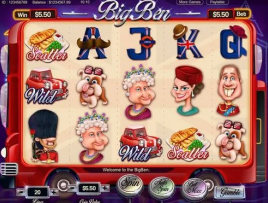Experts, execs attribute edge in | gamble fish manga review | Updated: 2024-12-01 07:10:29

## Lucky Draw Marketing Campaign: An Engaging Strategy for Brands
In today's fast-paced marketing landscape, businesses are on the lookout for innovative strategies to capture customer attention. One effective method that has gained traction is the lucky draw marketing campaign. This article delves into the essential components of a successful lucky draw campaign, helping brands maximize engagement and boost customer loyalty.
### 1. Understanding the Concept of Lucky Draw
**P**: A lucky draw is a promotional activity where participants enter for a chance to win prizes through a random selection process. Generally, these campaigns create excitement and anticipation among customers, attracting more foot traffic both online and offline.
### 2. Objectives of a Lucky Draw Campaign
**P**: The primary objectives of conducting a lucky draw marketing campaign include:
- **a. Increasing Brand Awareness**: By promoting an exciting event, brands can reach new audiences and expand their market presence.
- **b. Boosting Customer Engagement**: Participants are likely to interact with the brand on social media platforms, thereby increasing engagement rates.
- **c. Building Loyalty**: Rewarding customers with a chance to win prizes fosters a sense of loyalty and encourages repeat business.
### 3. Components of a Successful Lucky Draw Campaign
**P**: To run a successful lucky draw, brands must pay attention to several key components:
#### a. Clear Rules and Regulations
**P**: Clearly outline the rules and eligibility requirements for participation. This information should be easily accessible on promotional materials and online platforms.
#### b. Attractive Prizes
**P**: Offer prizes that resonate with your target audience. Whether it's discounts, giveaways, or high-value items, the allure of winning must be strong enough to inspire participation.
#### c. Channel Selection
**P**: Choose the right channels for promoting the lucky draw, such as social media, email newsletters, or in-store promotions. The choice of channel should align with where your target audience spends their time.
#### d. Duration of the Campaign
**P**: Determine an optimal timeframe for the campaign. Too short may not provide enough exposure, while too long could dilute excitement.
### 4. Promoting the Lucky Draw
**P**: Once the campaign is designed, promoting it effectively is essential. Here are some strategies:
#### a. Social Media Buzz
**P**: Utilize platforms like Instagram, Facebook, and Twitter to create buzz around the event. Use eye-catching visuals and engaging copy to entice users to participate.
#### b. Email Marketing
**P**: Send out newsletters announcing the lucky draw to your existing customer base. Include clear calls to action that direct them to participate.
#### c. Influencer Collaborations
**P**: Partnering with influencers can help broaden your campaign's reach. They can promote your lucky draw to their followers, increasing visibility and participation.
### 5. Analyzing Success Post-Campaign
**P**: After the campaign concludes, it’s vital to analyze its effectiveness. Consider metrics such as participant numbers, engagement rates, and social media interactions to gauge success.
### Conclusion
In summary, lucky draw marketing campaigns offer brands an excellent opportunity to engage customers, enhance visibility, and foster loyalty. By understanding the essentials—ranging from clear rules and attractive prizes to effective promotion strategies—businesses can leverage this promotional tactic to its full potential. A well-executed lucky draw not only creates excitement but also adds meaningful value to the customer experience, ultimately benefiting both the brand and its clientele.
**Word Count**: 553 words.



